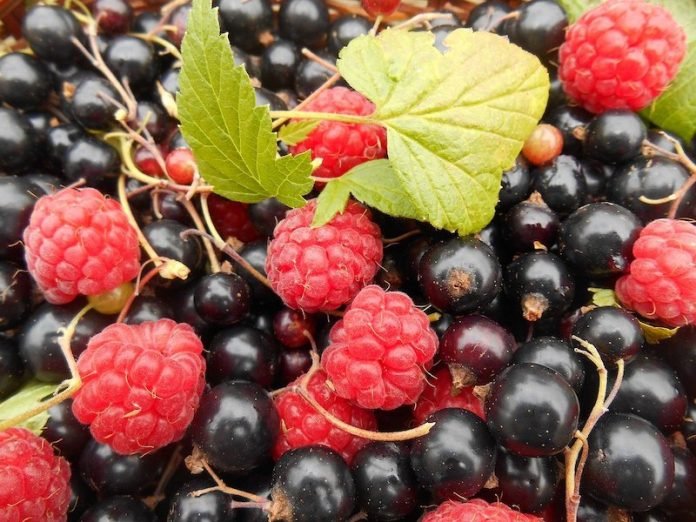
In a new study, researchers found that blackcurrants have a beneficial effect on post-meal blood sugar response, and the required portion size is much smaller than previously thought.
They found the fruit could balance the glucose response of ingested sugar by attenuating its rise and delaying its fall.
The effect is likely linked to berry-derived polyphenolic compounds, anthocyanins, which are rich in blackcurrants.
The research was conducted by a team from the University of Eastern Finland.
Berries are an important component of a healthy diet, being rich in vitamins, minerals, dietary fiber, and polyphenols.
In recent years, there have been many studies monitoring the effects of berries on glucose metabolism, with dark berries, such as blackcurrant and bilberry, having the most convincing results.
Blackcurrants are often consumed with added sugar because of their natural sourness, which may be a cause of concern for health-conscious consumers.
However, it seems that sugar consumed with blackcurrants is not as unhealthy as sugar consumed without berries.
In the study, the team tested 26 healthy participants who consumed three different test products and sugar water as a control product at four separate study visits.
The test products were a blackcurrant purée with added sugar, a blackcurrant product containing fermented quinoa, and a blackcurrant product base without blackcurrants.
Each of them contained 31 g of available carbohydrates and had a similar composition of sugar components.
The team found that compared to sugar water, both blackcurrant products had reduced maximum glucose and insulin, delayed fall of glucose, and delayed rise of free fatty acids because of hypoglycemia.
The results support earlier findings on the beneficial effects of blackcurrant on blood glucose response after a meal, showing the effect with smaller portion size.
The team says over a longer period of time, smaller variations in the blood glucose and insulin levels, and improved insulin sensitivity, may decrease the risk of type 2 diabetes.
One author of the study is Jenni Lappi.
The study is published in the British Journal of Nutrition.
Copyright © 2020 Knowridge Science Report. All rights reserved.



